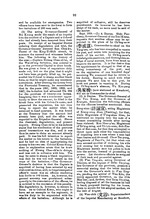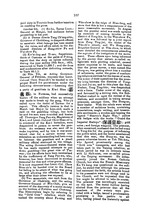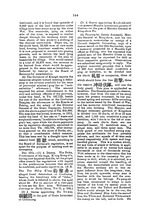| 1 |
 |
“...posts. On receipt of an Imperial Decree
ordering tlieir degradation and trial, the
Governor-General directed Suu Chia-ku,
Taotai of the King-Yi-Shili circuit, to
summon the accused and witneaaea before
him. The following is tike history of
the case:Captain U wftng Clian-chao, of
t]ie Wei-cb'nng battalion, was ordered to
go to the provincial Capital to draw funds.
He was given a form of requisition duly
made out, but on the plea that it might
not have been properly filled up, he per-
Buaded his Colonel to stamp another blank
form, so that he might make any necessary
corrections. After drawing the money from
the Provincial Treasury, lie remembered
that in the years 1861, 1863, 1866, and
]867the battalion had advanced Tls. 294
for the purchase of twenty-one horses.
Imagining that it was a convenient; oppor-
tunity to draw the Hmount, he lilled in the
blank form with his ColoncVs name, and
presented the requisition, liia int< ition
being to report the matter when lie
returned to head-quarters....”
|
|
| 2 |
 |
“...under the
folloiving circunisiances : Learning that
a party of gamblers in Kia-i Hien
in Formosa, had successfully
beaten off the soldiery when an attempt
was made to break up the gang, Wen-jii
called upon the taotai of Taiwan for a
report. This ocials version is that in
March last Major Li Lien-chih made a
raid on the gambling village, but both
be and Ihb men were wounded and beaten
off. Thereupon Yang Pao-wu, Magistrate of
Kia-i, and Lieut.-Colonel Chow Shan-ch^u,
in command of the Kai-i battalion, were
despatched ill person to arrest the gftm-
blers. An emissary was also sent off to
make inquiries, and by him it was aRcer-
tained that for a certain money con*
fiideration an understanding had been come
to between the gamblers and a small
military ocial stationed in the village.
The acting Governor-General states that
he haa made repeated attempts to put
down gamblingthe great vice of Tai-
waii , but his efforts have been neutralised
by the inefficiency of Yang Pao-wu, who,
however, haa...”
|
|
| 3 |
 |
“...Kwei-chow had written to aay that the
Commanders of the battalion in the neigh-
bourhood of Momein having represented
that the people of that locality being
in revolt, the force afc their disposal
was most inadequate; he had, there-
fore, to request that the Ti-tsz Batta-
lion, under Colonel Weu Ming-ti, an
officer of repute, might be sent as a
reinforcement to Yunnan, the expensefl of
their subsistence while on the nmch being
provided by the province of Kwang-si.
The memorialist remarks that the pro-
tection of the Annam frontier, and the
work of reorganisation at Tieu Cliou
and other places, demand strict
attention, while the rebels on the Kwei-
chow border, uot being entirely extermin-
ated, the moat careful watch has to be
kept, and meanures of precaution caunot
be relaxed. The force at bis disposal,
therefore, is not too large ; but the military
operations in Yunnan being of still greater
importance, ]e has detached thia battalion
as requested, and will provide Tls. 5,000
for their expeuBea...”
|
|
| 4 |
 |
“...failed to obtain a reduction in
the illegal imposts and exactions on the
part of the District Magistrate, against
which Yiian Ting-kiao had appealed in
vain at the provincial capital and at
Peking, that he assembled a body of people
with whom he proceeded to the tax office
to hold a reckouiug. The District Magis-
trate, Sun Ting-yang, applied for reince-
forceinents hereupon, ou the score of an
assemblage of lawless persons having been
got together ; and the officer in command
of tbe Lli VVu battalion, named Sieh,
having been the first to arrive at Tung-
hiang, tbe peopleiu a state of alarm,
went to his camp to present a petition.
The officer Sieh, having ascertained that
Yuan Tiiig-kiao had taken to flight, and
that there were no insurgents to proceed
a^ainBfc, made a demonstration of autho-
rity, and ttte public mind relapsed into a
Btate of quiet. When Li Yeo-heng arrived
with his force at Tung-hiang, the people
proceeded as before to present a state*
menfc of their grievances at his head-...”
|
|
| 5 |
 |
“...provinces! may bo organised for drill at
their respective garrisons. Observations
are submitted categorically in reply. The
original memorial proposes that a body
of 600 foot soldiers shall constitute a
ying or battalion, to be divided into
six cha-la or companies, three of
which should form the line three
the reserve and oue the
body guard. Thia plan is applauded as
excellent. The General proceeds to obBerre,
however, that from the time of his entry
upon his preaenb commaud, he has con-
ducted spring and autumn drills according
to the tactics issued by the Board of War,
and has moreover introduced manoeuvres
of his own devising. Tiie Manchu and
Mongol sedentary garrison of Kingchow
is divided into 56 cha-lat of 18 or 19 men
each, and 1,000 men constitute a ying or
battalion, with 7 cha-la to the tut or com-
pany. Iu each cha-la there are one
standard-bearer, ]0 matchlock men, 4
gingal men, and three spear men. The
body guard of one hundred strong com-
prises the artillerists for four...”
|
|